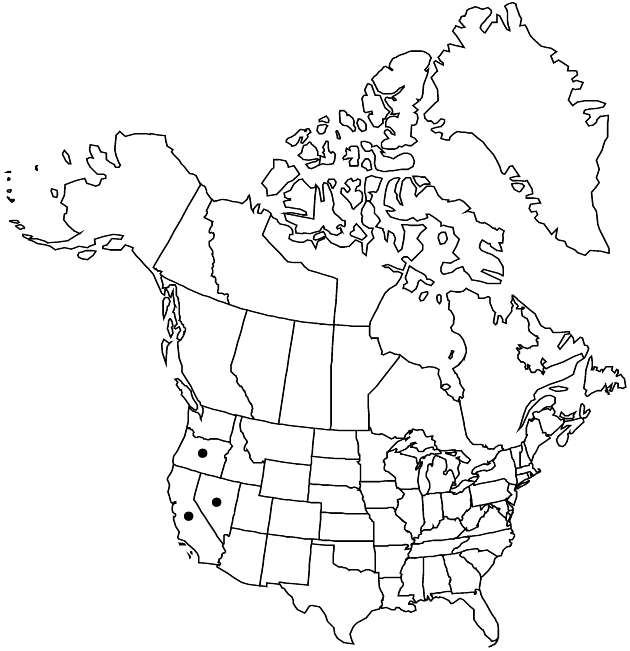Difference between revisions of "Cirsium douglasii"
in A. P. de Candolle and A. L. P. P. de Candolle, Prodr. 6: 643. 1838.
RevisionBot (talk | contribs) m (Bot: Adding category Revision Pending) |
imported>Volume Importer |
||
| Line 1: | Line 1: | ||
{{Treatment/ID | {{Treatment/ID | ||
|accepted_name=Cirsium douglasii | |accepted_name=Cirsium douglasii | ||
| − | |accepted_authority= | + | |accepted_authority=de Candolle |
|publications={{Treatment/Publication | |publications={{Treatment/Publication | ||
|title=in A. P. de Candolle and A. L. P. P. de Candolle, Prodr. | |title=in A. P. de Candolle and A. L. P. P. de Candolle, Prodr. | ||
| Line 51: | Line 51: | ||
-->{{#Taxon: | -->{{#Taxon: | ||
name=Cirsium douglasii | name=Cirsium douglasii | ||
| − | |authority= | + | |authority=de Candolle |
|rank=species | |rank=species | ||
|parent rank=genus | |parent rank=genus | ||
| Line 62: | Line 62: | ||
|publication year=1838 | |publication year=1838 | ||
|special status=Illustrated;Endemic | |special status=Illustrated;Endemic | ||
| − | |source xml=https:// | + | |source xml=https://bitbucket.org/aafc-mbb/fna-data-curation/src/2e0870ddd59836b60bcf96646a41e87ea5a5943a/coarse_grained_fna_xml/V19-20-21/V19_104.xml |
|tribe=Asteraceae tribe Cardueae | |tribe=Asteraceae tribe Cardueae | ||
|genus=Cirsium | |genus=Cirsium | ||
| Line 68: | Line 68: | ||
}}<!-- | }}<!-- | ||
| − | --> | + | -->[[Category:Treatment]][[Category:Cirsium]] |
| − | |||
| − | [[Category:Treatment]] | ||
| − | [[Category:Cirsium | ||
| − | |||
Revision as of 20:47, 5 November 2020
Biennials or short-lived monocarpic perennials, 60–250 cm; taprooted. Stems 1–several, erect or ascending, densely gray-tomentose; branches few–many, ascending to spreading. Leaves: blades oblong-elliptic to obovate, 10–60 × 2–15 cm, unlobed or shallowly to deeply pinnatifid, lobes lanceolate to ovate-triangular, ascending to spreading, entire to coarsely dentate or lobed, main spines slender to stout, 2–30 mm, faces densely gray-tomentose, rarely glabrate; basal present at flowering, petiolate; principal cauline well distributed, proximal winged-petiolate, distal sessile, bases auriculate-clasping or decurrent as a spiny wing 1–3 cm; distalmost well separated, bractlike. Heads 10–many, often crowded at branch tips, collectively forming paniculiform arrays. Peduncles 0–4(–8) cm. Involucres ovoid to hemispheric, 1.5–3 cm, 2–4.5 cm diam, loosely arachnoid on phyllary margins or glabrate. Phyllaries in 6–8 series, imbricate, often with dark purple patch near tip, ovate-lanceolate (outer) to linear-lanceolate (inner), abaxial faces with linear to elliptic glutinous ridge; outer and middle appressed, entire, spines spreading, 1–9 mm; apices of inner often purple-tinged, often flexuous, flattened, spineless, scabrid. Corollas rose-purple (white or pinkish-tinged), 18–21 mm, tubes 8–9 mm, throats 5–6 mm (abruptly expanded), lobes 5–6 mm; style tips 3–4.5 mm. Cypselae dark brown to black, 5–6 mm, apical collars not differentiated; pappi 15–20 mm.
Distribution

Calif., Nev., Oreg.
Discussion
Varieties 2 (2 in the flora).
Selected References
None.
Key
| 1 | Distal cauline leaves with larger spines mostly less than 7 mm | Cirsium douglasii var. breweri |
| 1 | Distal cauline leaves with larger spines usually 7–20 mm | Cirsium douglasii var. douglasii |